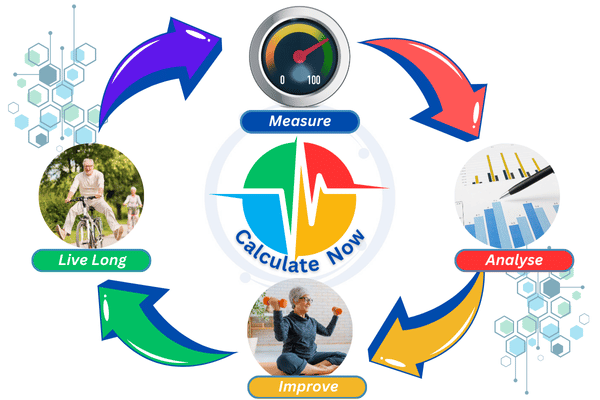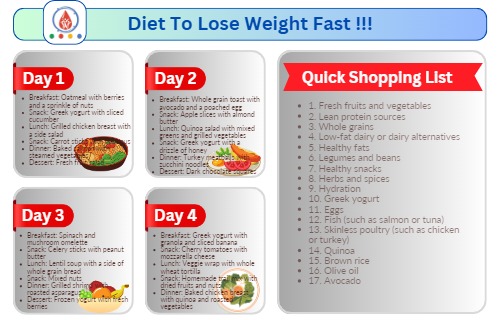Life Expectancy Calculator Australia - Best Tool
Explore the average life expectancy in Australia with our life expectancy calculator. Compare with the World and learn about factors affecting lifespan.

Calculate Your Life Expectancy in Seconds

The life expectancy in Australia is among the highest globally, reflecting the country's excellent healthcare and living conditions. The average life expectancy in Australia is 81.3 years for men and 84.8 years for women. Notably, the healthy life expectancy—years people are expected to live in good health—is 70.2 for men and 71.7 for women. This shows Australians can expect long lives with many healthy years.
Australia’s strong healthcare system, with skilled personnel attending 99% of births and low maternal mortality at 6 per 100,000, supports high life expectancy. For example, Sir Robert Menzies, Australia's longest-serving prime minister, lived to 83, contributing greatly to the nation's development over his long life.
Despite its high standards, there are a few health challenges. For instance, tuberculosis incidence is 7 per 100,000 people, and hepatitis B affects 0.13% of children under five. The under-five mortality rate remains low at 4 per 1,000 births, showing the strength of Australian healthcare for young children. Overall, life expectancy in Australia by gender and age remains high, making the country one of the best places to live a long, healthy life.
83 Years
life expectancy at birth, both sexes combined84.8 Years
life expectancy at birth, females81.3 Years
life expectancy at birth,males
Comparison of Average Life Expectancy: Australia vs. World
Comparison of Average Healthy Life Expectancy: Australia vs. World
What is Life Expectancy?
Life expectancy is the measure of the average number of years that an individual can expect to survive. It takes in to consideration several demographic and health data. Our calculator aids in obtaining the estimation based on certain personal information.How Life Expectancy is Calculated?
Life expectancy is shaped by a variety of factors, including health, lifestyle, genetics and environment. Managing these elements can significantly influence one's overall lifespan and well-being. Use our Life-Expectancy Calculator to calculate your approximate life span.What Factor influence Life Expectancy?
Several factors are responsible for shaping the life expectancy of an individual which include: health, physical stature, family background and place of dwelling. Controlling these aspects may alter the expected lifespan and quality of life.The following factors that affect life expectancy are chronic stress, health care access, physical activity, nutrition, social networking and economic considerations:
Medical conditions: Overweight and obesity, lack of medical care and neglect affects mental and physical wellbeing’s scope of effectiveness.
Habitual: Smoking, diet and alcohol consumption rate among people may determine their life span.
Family history: Genetics and inherited health and medical conditions can affect your life expectancy.Environment: Where you live, exposure to pollution, and access to healthcare can also influence how long you live.
Life Expectancy Calculator FAQ
What is the average life expectancy in Australia?The average life expectancy in Australia varies by gender and other factors. Use our calculator to explore current figures.
How does lifestyle affect life expectancy in Australia?
Lifestyle choices such as diet, exercise and smoking can significantly impact the average life expectancy in Australia.
What factors influence life expectancy in Australia?
Key factors include healthcare access, environmental conditions, socioeconomic status, and genetics.
How does Australia's life expectancy compare to the global average?
Life expectancy in Australia can be higher or lower than the global average due to factors like healthcare and living conditions.
What is the life expectancy difference between men and women in Australia?
Generally, women in Australia have a longer life expectancy compared to men, influenced by health, lifestyle, and biological factors.Average for male is 81.3 years, while average life expectancy for female is 84.8
Life Expectancy Calculator for Other Countries :
Afghanistan | Albania | Algeria | Angola | Antigua and Barbuda | Argentina | Armenia | Australia | Austria | Azerbaijan | Bahamas | Bahrain | Bangladesh | Barbados | Belarus | Belgium | Belize | Benin | Bhutan | Bolivia | Bosnia and Herzegovina | Botswana | Brazil | Brunei Darussalam | Bulgaria | Burkina Faso | Burundi | Cabo Verde | Cambodia | Cameroon | Canada | Central African Republic | Chad | Chile | China | Colombia | Comoros | Congo | Costa Rica | Côte d Ivoire | Croatia | Cuba | Cyprus | Czechia | North Korea | Democratic Republic of the Congo | Denmark | Djibouti | Dominican Republic | Ecuador | Egypt | El Salvador | Equatorial Guinea | Eritrea | Estonia | Eswatini | Ethiopia | Fiji | Finland | France | Gabon | Gambia | Georgia | Germany | Ghana | Greece | Grenada | Guatemala | Guinea | Guinea-Bissau | Guyana | Haiti | Honduras | Hungary | Iceland | India | Indonesia | Iran | Iraq | Ireland | Israel | Italy | Jamaica | Japan | Jordan | Kazakhstan | Kenya | Kiribati | Kuwait | Kyrgyzstan | Laos | Latvia | Lebanon | Lesotho | Liberia | Libya | Lithuania | Luxembourg | Madagascar | Malawi | Malaysia | Maldives | Mali | Malta | Mauritania | Mauritius | Mexico | Micronesia | Mongolia | Montenegro | Morocco | Mozambique | Myanmar | Namibia | Nepal | Netherlands | New Zealand | Nicaragua | Niger | Nigeria | North Macedonia | Norway | Oman | Pakistan | Panama | Papua New Guinea | Paraguay | Peru | Philippines | Poland | Portugal | Qatar | Republic of Korea | Republic of Moldova | Romania | Russian Federation | Rwanda | Saint Lucia | Saint Vincent and the Grenadines | Samoa | Sao Tome and Principe | Saudi Arabia | Senegal | Serbia | Seychelles | Sierra Leone | Singapore | Slovakia | Slovenia | Solomon Islands | Somalia | South Africa | South Sudan | Spain | Sri Lanka | Sudan | Suriname | Sweden | Switzerland | Syria | Tajikistan | Thailand | Timor-Leste | Togo | Tonga | Trinidad and Tobago | Tunisia | Turkey | Turkmenistan | Uganda | Ukraine | UAE | United Kingdom | Tanzania | USA | Uruguay | Uzbekistan | Vanuatu | Venezuela | Vietnam | Yemen | Zambia | ZimbabweDisclaimer - Life Expectancy Tool :
The aim of our Life Expectancy Calculator which is based on statistical data, is to allow learning about a person’s life span. Nevertheless, this should never be seen as an accurate expectancy figure. A person may have several internal health determinants such as undiagnosed diseases or external variables, for example accidents or abrupt lifestyle changes which may not have been completely captured during the test. Therefore, results may differ from actual outcomes.
The statistics which underlie the calculations are suitably aggregated within the available data on respective countries and regions, but the mentioned tool does not take into consideration personal history of diseases or individual genetic or health characteristics. It is important to understand that the calculator is just a tool for information purpose and should not be used as a substitute for a qualified medical advise or diagnosis.
By accessing this tool and results you agree to our terms and conditions. Proceed.Fit, its owners, and developers are not liable for any decisions made based on the results provided by this tool. We strongly advise you to consult with your healthcare provider for an accurate health assessment and personalized medical advice.


_.png)
_.png)


_(1)_1.png)
_1.png)
_1.png)
_(1)_1.png)






